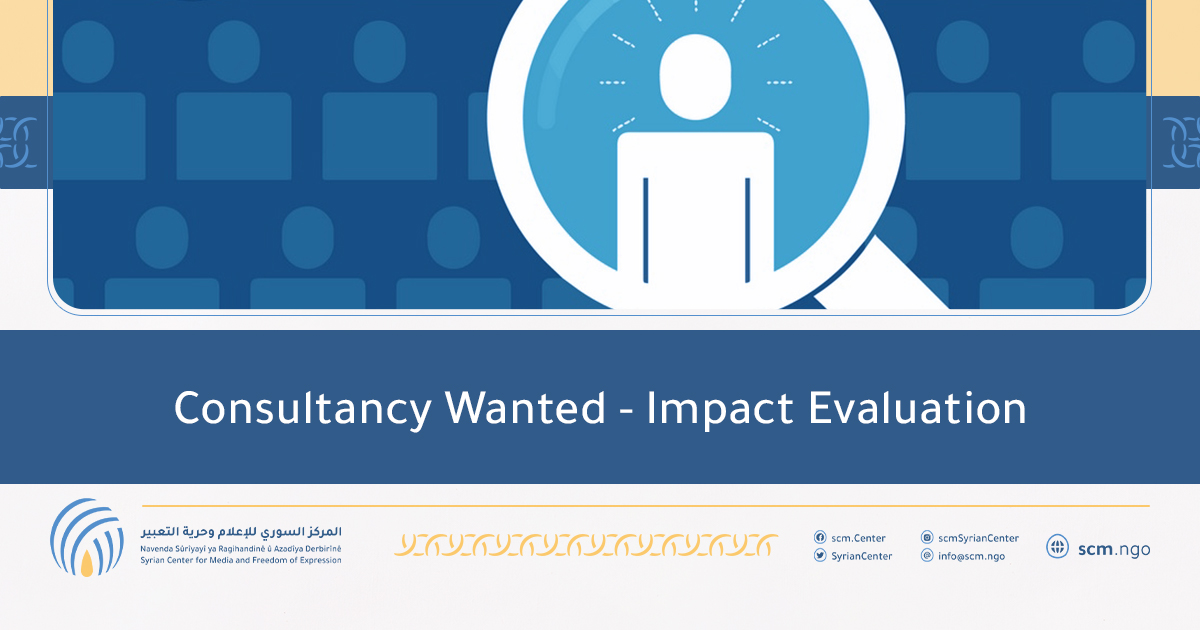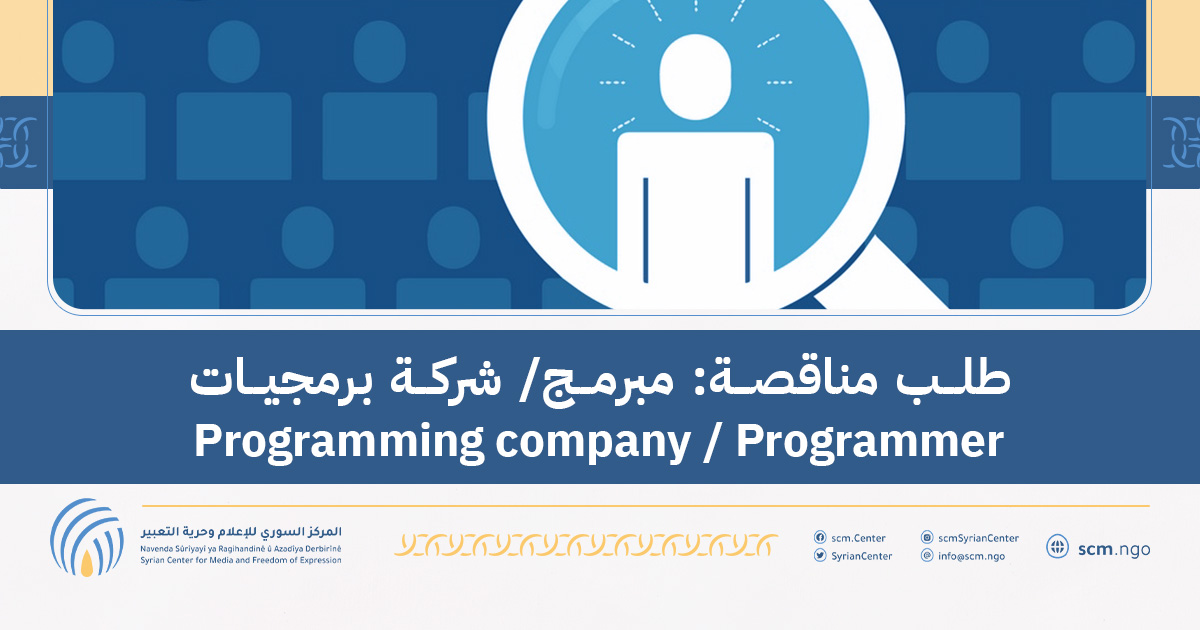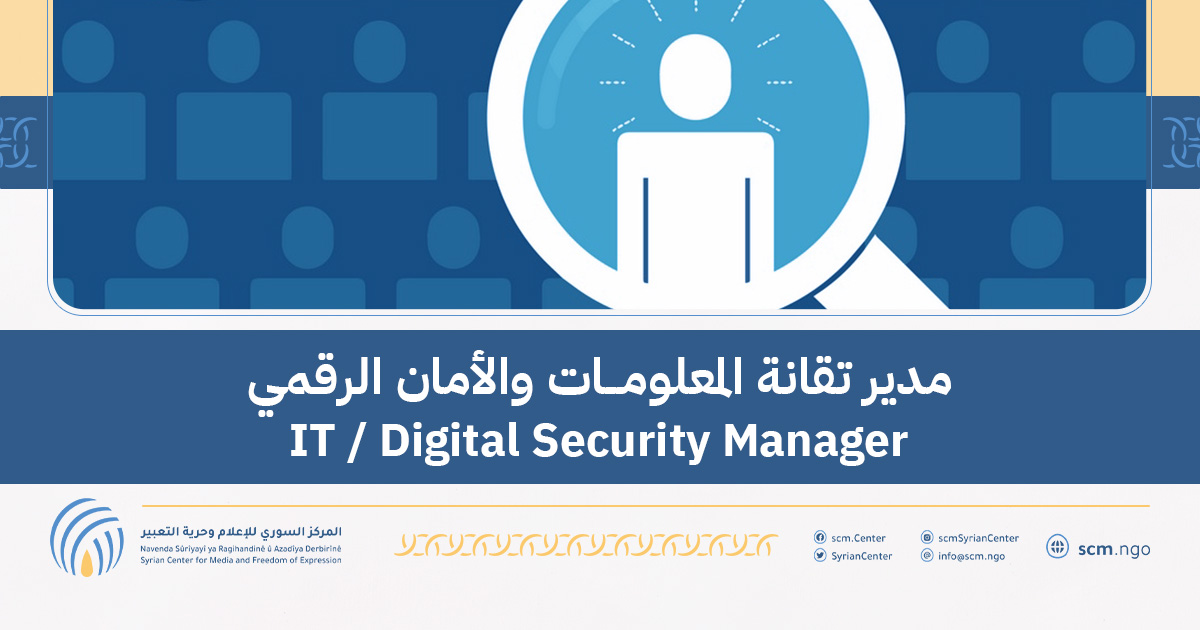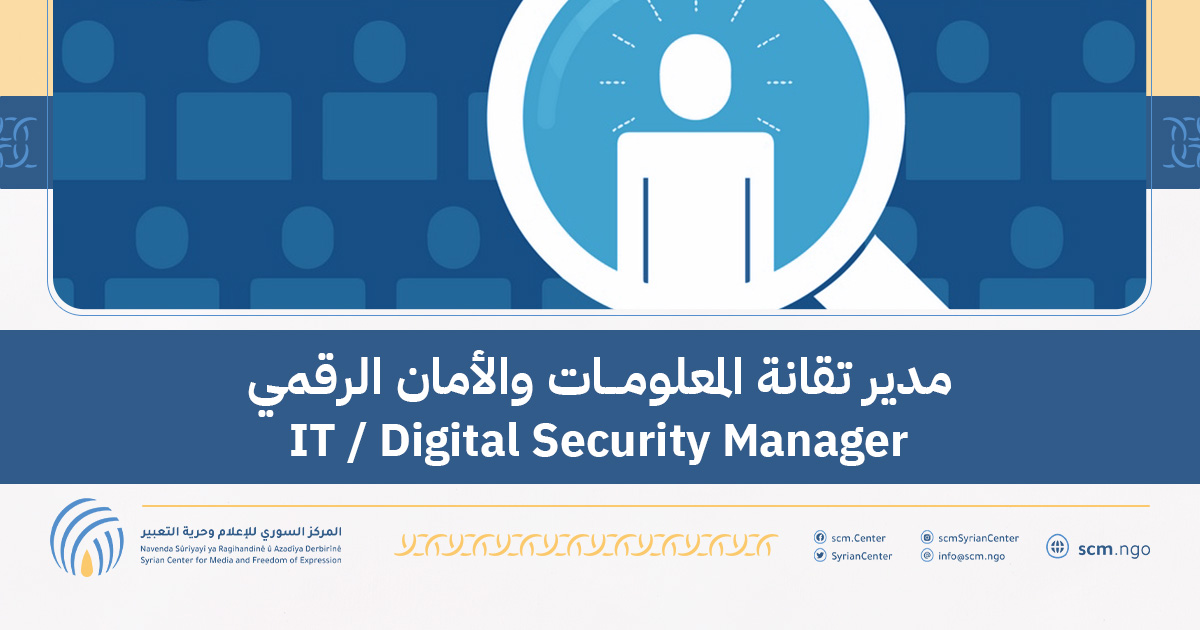Introduction
The purpose of this Terms of Reference (ToR) is to outline the scope, objectives, methodology, and expected deliverables for an Impact Evaluation Consultancy, designed to evaluated the human rights programs of the Syrian Center for Media and Freedom of Expression (SCM) during the last three years. This consultancy aims to assess the effectiveness, relevance, and sustainability of the organization’s programs and interventions, with a focus on promoting positive and lasting impacts in the realm of human rights.
Objectives
The primary objectives of the impact evaluation consultancy are:
- Assess the overall impact and effectiveness of SCM’s programs, focusing on the last three years.
- Identify strengths, weaknesses, opportunities, and threats in the implementation of SCM programs and projects.
- Provide evidence-based recommendations for program improvement and future strategic planning.
Scope of Work
The detailed Scope of work can be consulted in Annex 1
Methodology
The consultancy will employ a mixed-methods approach, combining quantitative and qualitative research methods. This will include, but not be limited to, surveys, interviews, focus group discussions, document reviews, and site visits.
Deliverables
- Inception Report: An outline of the methodology, tools, and work plan.
- Draft Impact Evaluation Report: A comprehensive report presenting detailed findings, conclusions, and recommendations.
- Final Impact Evaluation Report: An updated report based on feedback received, with a finalized set of recommendations and a clear executive summary.
Timeline
The consultancy is expected to be completed within 12 weeks from the contract commencement date.
Qualifications of Consultant/Firm
Expertise in Impact Evaluation:
- Demonstrated experience in designing and conducting impact evaluations, preferably for international development and human rights organizations.
- Proficiency in employing a mixed-methods approach, including both quantitative and qualitative research methods, to provide a well-rounded assessment.
Human Rights Background:
- In-depth knowledge of international human rights frameworks, principles, and standards.
- Previous experience working on projects related to human rights, with a proven understanding of the complexities and challenges in this field.
Methodological Competence:
- Expertise in developing and implementing evaluation methodologies tailored to human rights programs.
- Capability to design surveys, conduct interviews, facilitate focus group discussions, and employ other relevant data collection techniques.
Data Analysis and Reporting Skills:
- Proficiency in data analysis using relevant statistical tools and qualitative analysis techniques.
- Strong report writing skills, with the ability to communicate complex findings in a clear and concise manner.
Stakeholder Engagement:
- Experience in effectively engaging with a range of stakeholders, including beneficiaries, community members, organizational staff, and external partners.
- Strong interpersonal and communication skills to facilitate productive interactions with diverse stakeholders.
Requirements:
- Advanced university degree in Human rights, international development, or other related fields.
- At least 5 years of experience in conducting evaluations in Human Rights at impact and program levels.
- Language: Fluency in oral and written English and Arabic.
Proposal Submission Instructions
Interested consultants or consulting firms are invited to submit their proposals by 26.11.2023 on the email: [[email protected]].
Proposals should include a detailed work plan, methodology, budget, and references. In addition to the detailed CVs of the consultants.
Evaluation and Selection
Proposals will be evaluated based on their alignment with SCM’s needs, qualifications and proven expertise, methodology, and cost-effectiveness.
I. Assessment of Program Effectiveness:
Annex 1: Scope of Work
Outcome Measurement:
- Evaluate the extent to which the organization’s programs have achieved their intended outcomes and objectives.
- Utilize quantitative indicators and qualitative data to measure the tangible results of the programs, such as policy changes, increased awareness, and improved human rights conditions.
Stakeholder Perspectives:
- Gather perspectives from key stakeholders, including program beneficiaries, partners, and relevant authorities, to understand their perceptions of the program’s impact.
- Assess the alignment of stakeholders’ experiences with the intended outcomes and identify any unintended consequences.
Comparative Analysis:
- Conduct a comparative analysis of the intended outcomes against actual achievements.
- Explore variations in impact across different geographical areas, demographic groups, or types of interventions to identify factors contributing to success or challenges.
II. Relevance and Alignment:
Relevance:
- Assess the current human rights landscape to identify emerging challenges and needs.
- Evaluate the extent to which the organization’s programs address these needs and align with contemporary human rights issues.
Mission Alignment
- Examine how well the programs align with the overarching mission and values of SCM.
- Identify areas where program adjustments may be necessary to ensure continued relevance and effectiveness.
III. Sustainability:
Long-Term Impact:
- Assess the sustainability of the impacts generated by SCM’s programs beyond the project lifecycle.
- Explore whether positive changes are enduring and have led to lasting improvements in human rights conditions.
- Examine external factors, such as changes in government policies or economic conditions, that may impact the sustainability of program outcomes.
- Provide recommendations on how SCM can adapt its strategies to navigate external challenges and ensure continued impact.




